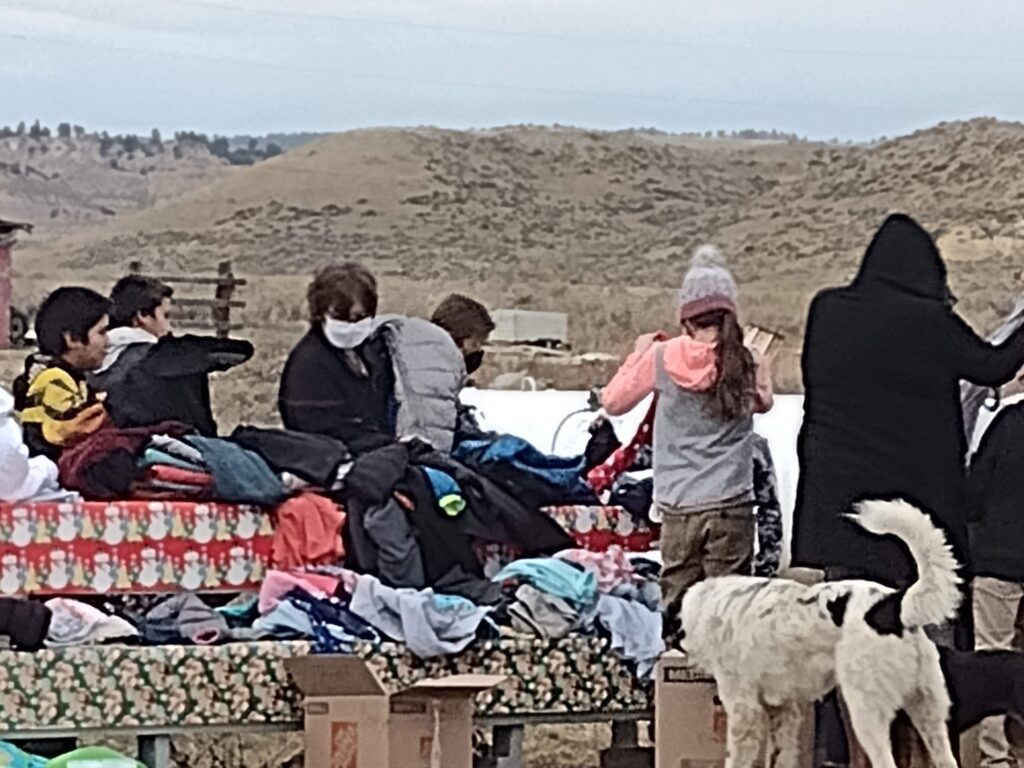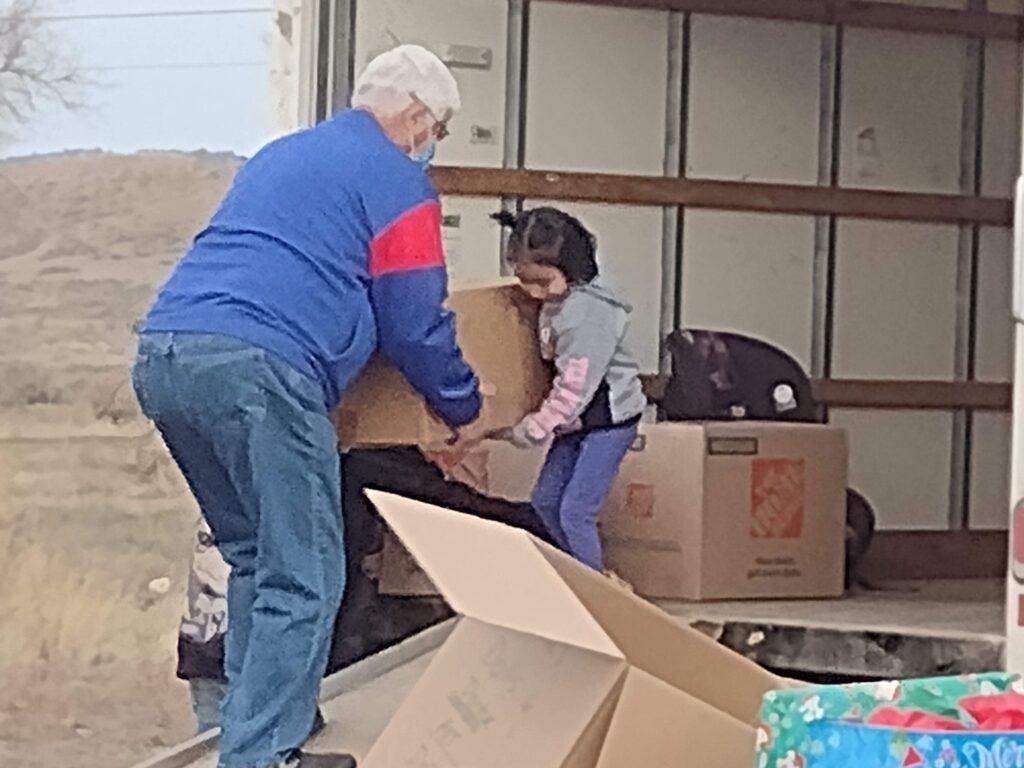
Monica Olivera, OFS, a native of Peru, describes growing up “in a country where poverty was everywhere.” At the time, she was not impressed with the Church’s response in an overwhelmingly Catholic country, as it allied itself with a repressive military and an elite that often shut out the cries of the poor.
Now she is in middle America, in Lawrence, Kansas, where she has become renewed by a Catholic faith that animates her actions in ministering to isolated Native Americans on the poorest of reservations. She has Francis of Assisi to thank.
As a Secular Franciscan, she’s followed in the footsteps of Francis through her involvement in the Brother Jacoba community. “I grew up with a negative view of the Church. But Francis taking faith into action was very attractive to me. Let’s not talk about faith; let’s do faith,” she says, noting the famous phrase attributed to the saint in which he exhorted his followers to preach the Gospel with words only when necessary.
Monica became aware of the Secular Franciscans while working in ministry at Haskell Indian Nations University, a college for Native Americans. The Brother Jacoba Secular Franciscan community meets every month with a formal program of prayer, discussion, and socializing. But for Monica and about 10 others in the group that commitment goes way beyond a monthly gathering.
Beginning in 2011, at least five times a year members of the group take off, sometimes for as long as 18-hour- drives, through the West to isolated reservations.
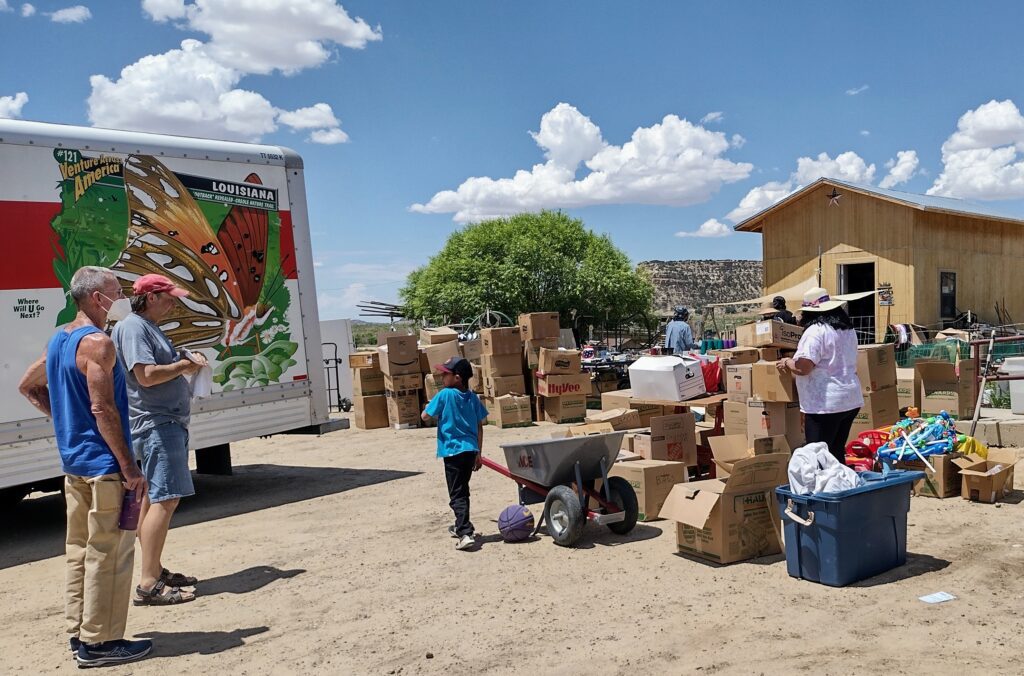
Upon arrival, they distribute winter clothes, books, toys, and in one case, equipment to build a park, all at the invitation of tribal members in Cheyenne, Sioux and Navajo communities.
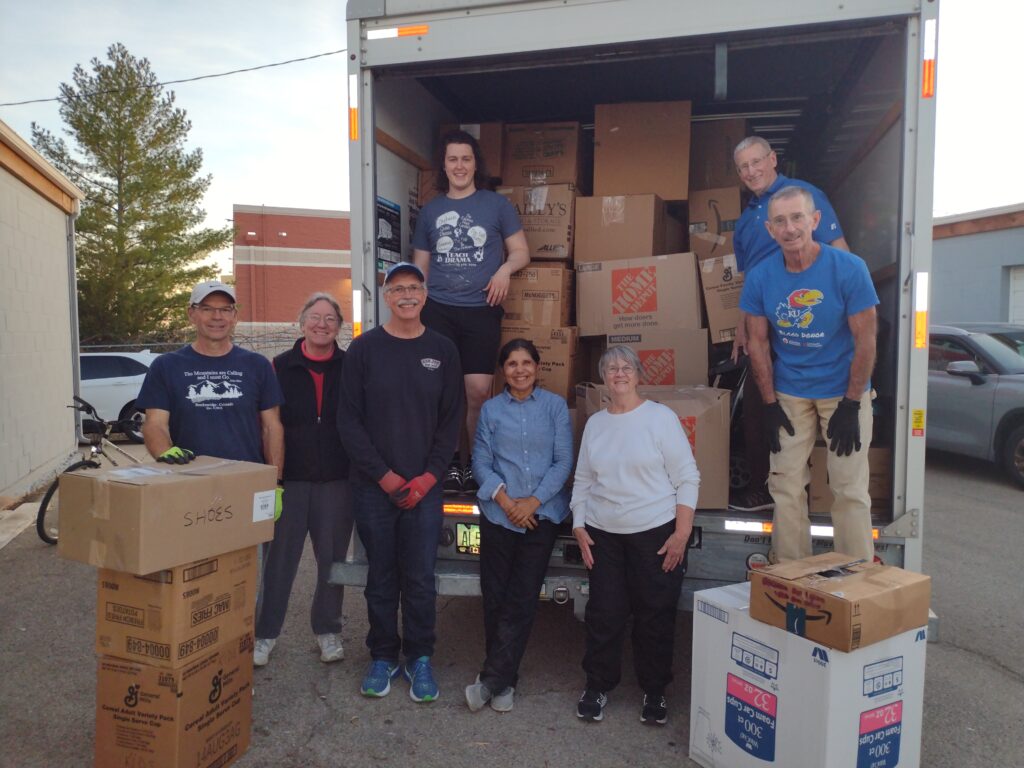
“When we started, we didn’t know how to serve these communities. We learned to ask them what do you want us to do,” Monica says. Over more than a decade, they have made contacts and are welcomed each year. Their delivery of park equipment to one tribe inspired the tribal council there to build a network of parks throughout the reservation. With the Sioux, the group donated a library through collections gathered from the Lawrence Catholic community. Monica expected about 2,000 books to be donated by a parochial school, but they were able to collect nearly five times that amount. The library is put to good use as the nearest public facility is hours away.
Secular Franciscans are lay people. Monica notes that they were founded by St. Francis as a response to families who wanted to follow the Franciscan Way. Members – there are communities around the world – pledge themselves to poverty in their lay life, and pledge fealty to the teachings of the Gospel and St. Francis.
The outreach to Native Americans has been dubbed First Nations Outreach. The group does not proselytize. Instead, in the spirit of Francis, it has let its charity take root and made it speak the Gospel. They go only where invited.
Among the Navajo group they were serving, there was suspicion about outsiders from many young people on the reservation. They felt that those beyond their borders didn’t care about them.
Now, said Monica, “the youth have changed. They believe there are kind people outside their world. To me, that’s faith, that’s Franciscan.”
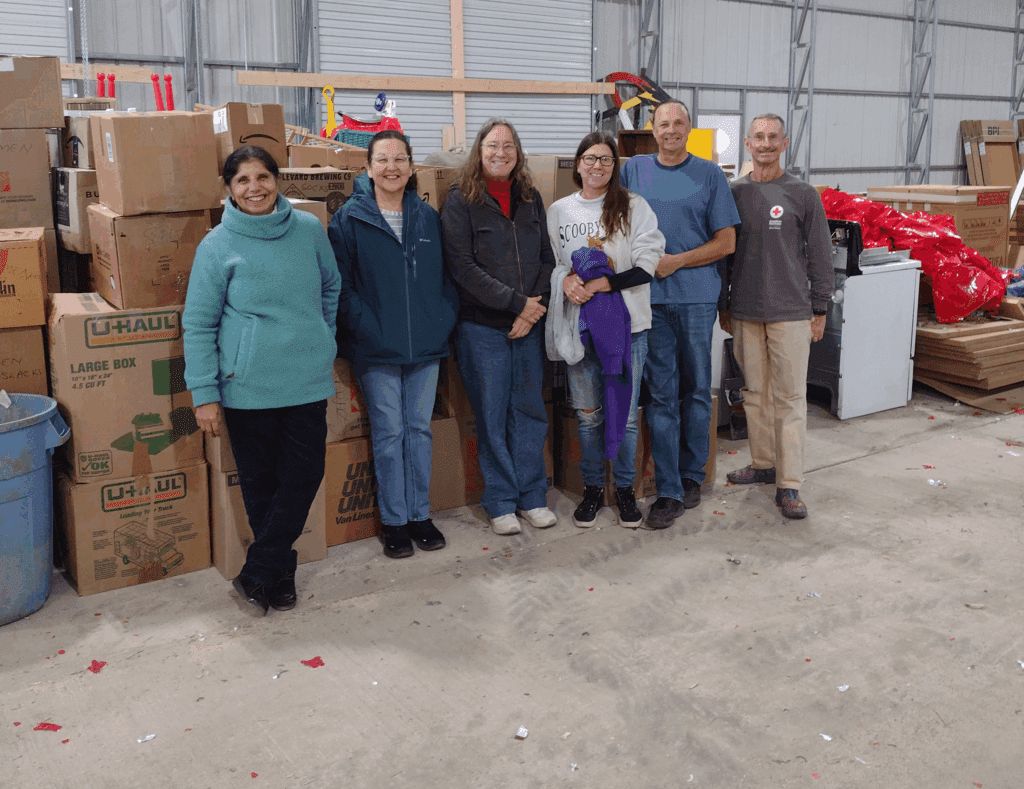
Monica came to the United States and studied communications at the University of Kansas. She was inspired by Franciscan ideals as a young person but knows that, as in many religious communities, Secular Franciscans are growing older. But she believes that their message has a particular appeal to young people.
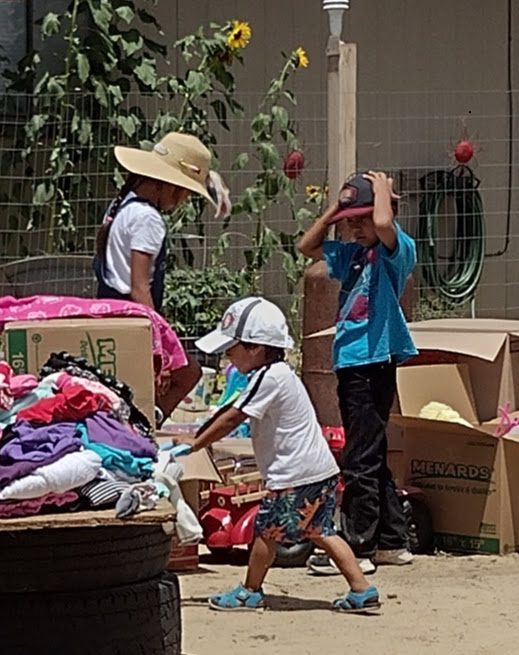
“We need to show the Church in action, not so much by words… We live in a society where people say don’t talk to me about God, show me,” she says. First Nations Outreach allows people to get involved in social action that addresses simple needs.
She has found that the people around Lawrence, many of whom come from Catholic parishes and schools in the area, are always willing to help and give generously. She sees the work of First Nations Outreach as a bridge between the inherent generosity of middle Americans and the needs of those on Native American reservations.
“That’s the fruit of Secular Franciscans trying to spring forth kindness one by one,” she says. The group has been able to generate $500,000 in donations each year.
It is one way to address needs that can sometimes seem overwhelming.
First Nation Outreach ministers to tribes in South Dakota, Arizona, Nebraska, and Montana. Many are in isolated places with few stores, no access to running water, little medical care, and limited opportunities. In some places, more than half the adult population is unemployed. There are high rates of addiction, diabetes, and suicide.
But the Secular Franciscan project continues to make inroads.
“We are a small group. We are only 10 people,” she says. But Secular Franciscans show that great things can be done “with a small group of people with a common goal that can help change the world.”
